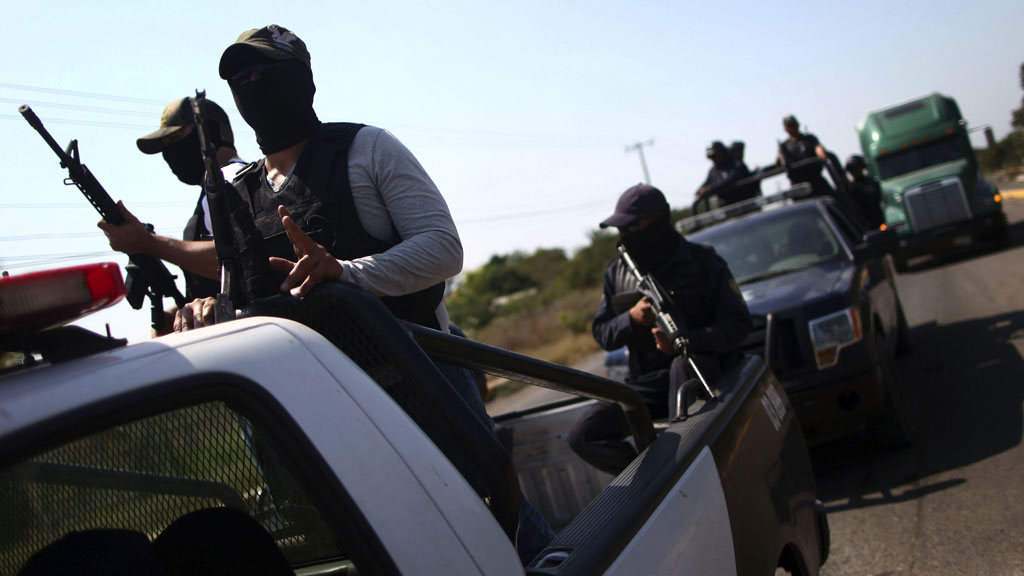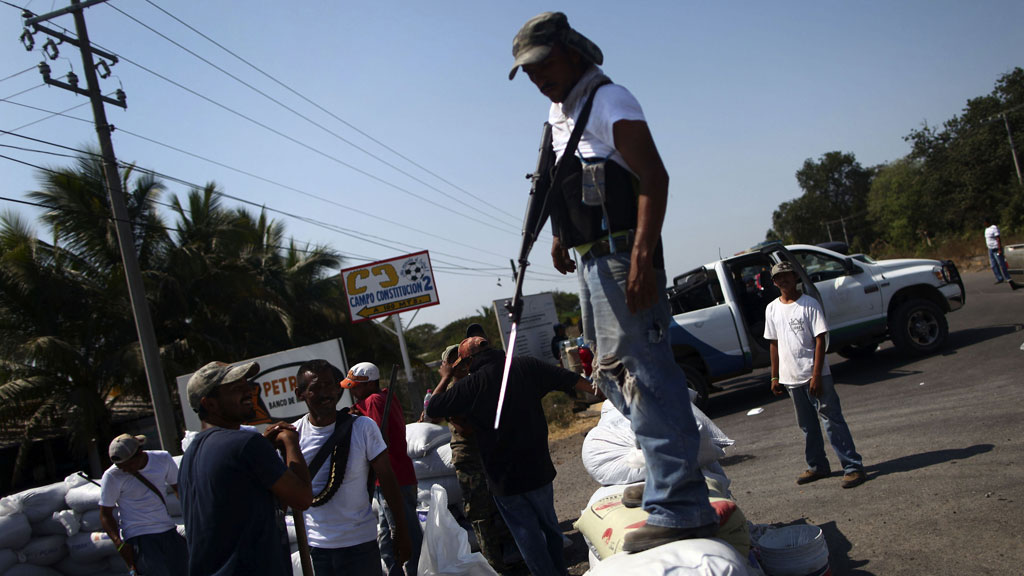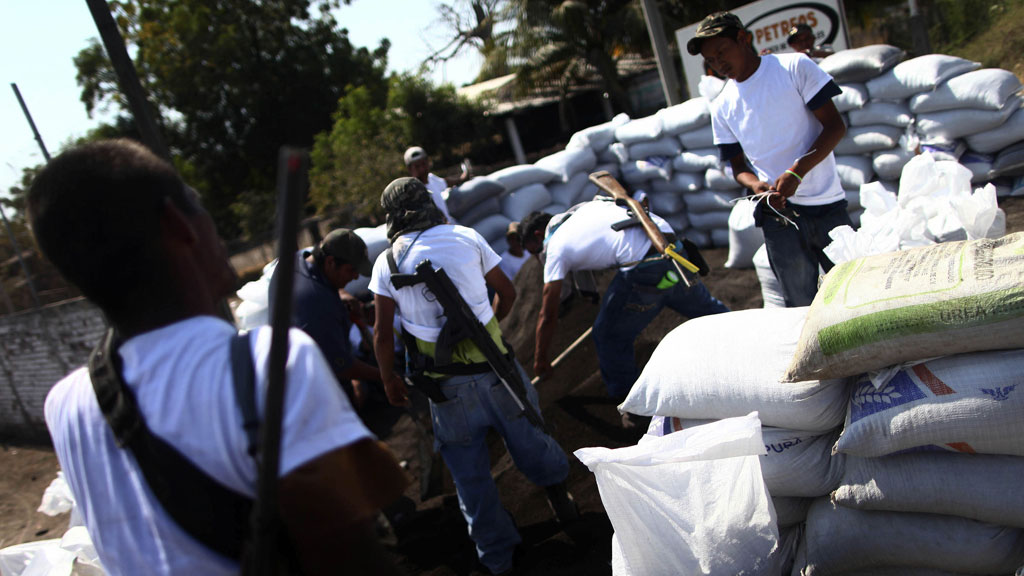The rise of Mexican vigilantes taking on the Knights Templar
Mexican vigilantes, backed by army troops, march into a key stronghold of the powerful Knights Templar drugs cartel.

The vigilantes were seen entering Apatzingan, a gang-held city in Mexico’s western Michoacan state, on Saturday.
Apatzingan, a city of 100-000 people, has been under effective control of the Knights Templar cartel for several years.
Mexico legalised the growing “self-defence” movement in Michoacan in January, saying they would be incorporated into quasi-military units called Rural Defence Corps.
Vigilante groups estimate their numbers at 20,000 men under arms.
Self-defence groups
“We are going to stay here. We are not going away today. We are going to continue, and our colleagues are working with the federal forces,” vigilante leader Hipolito Mora said.
In a telephone interview, Mr Mora added that self-defence groups were “moving around the city, cooperating in certain ways with the federal government.”
“Many, many people have been detained,” Mr Mora also said in that telephone interview.

Mr Mora said federal police controlled security in the city and both armed and unarmed members of the “self-defence” movement were working with them to identify Knights Templar hideouts.
He said approximately 200 gang members were arrested, including the brother of one of its leaders, Enrique “Kiki” Plancarte.
The government made no immediate comment.
The Knights Templar
The vigilantes’ presence in the city is both a symbolic and tactical boost for the movement.
In October, vigilantes tried to march into Apatzingan but were turned back by soldiers who said they couldn’t enter with weapons.
The Knights’ confrontations in January with heavily armed vigilantes in Michoacan have stirred concerns about President Enrique Pena Nieto’s strategy to combat widespread lawlessness in Mexico.
The government initially called on the vigilantes to disarm, but the so-called “self-defense” groups refused. Mr Pena Nieto in January said that some of the vigilantes had “genuinely organized to defend themselves”.
The government’s ambiguous attitude toward the local militias has fed concerns that it could be creating another potential adversary if the vigilantes become unmanageable – or if they too begin preying upon the local population.
Questions have been raised about who is arming and funding the vigilantes, with some locals and security analysts saying there is evidence rival cartels have infiltrated them.

Since taking office in December 2012, Mr Pena Nieto has sought to shift public attention to his efforts to reform the economy and away from grisly violence that has killed more than 80,000 people since his predecessor, Felipe Calderon, launched a military offensive against drug cartels seven years ago.
But security forces are still embroiled in face-offs with drug gangs in much of the country, and critics have accused Mr Pena Nieto of lacking a clear strategy, arguing that there has been little change from Mr Calderon’s military approach.
Though overall violence declined somewhat during Mr Pena Nieto’s first year, homicides rose in Michoacan, helping to spur the rise of heavily armed vigilante groups which occupied several of the Knights’ strongholds in the state.
The Knights Templar emerged from a split in another cartel in Michoacan known as La Familia and have controlled large swaths of the restive mountainous state in recent years, extorting farmers and local businesses and diversifying away from drug trafficking to activities such as mining.
The control of the Knights Templar group was once so complete that it would have been unthinkable for any rival to enter Apatzingan.
The Knights Templar often travelled in vehicles marked with its symbol, a red cross, and sponsored demonstrations calling for the federal police to leave the city.
The cartel promotes itself as a mystic Christian order dedicated to protecting the population from abuse at the hands of the military and police.
In January the Mexican government said it had captured a leader of the Knights Templar, Dionisio Loya Plancarte, known as "El Tio" ("The Uncle"). He is the most senior member of the gang to be arrested.
Mr Plancarte is suspected of being the gang's go-between with corrupt security and justice officials, the attorney general's office said.
Government officials say they are now determined to capture Servando 'La Tuta' Gomez, leader of the Knights Templar, who has openly provoked the government by making regular public statements posted on the internet.
Channel 4 News in January gained rare access to Mr Gomez - watch the interview above.